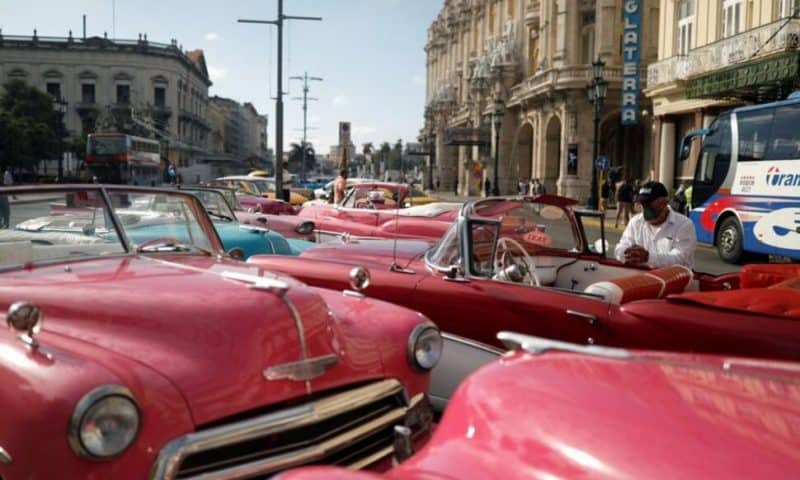HAVANA – Cuba is struggling to reawaken its tourism industry after months of pandemic-induced slumber as travelers stay away, threatening to derail the government’s plan to haul the economy out of a deepening crisis.
The communist-run island, long a popular Caribbean destination, has been betting on tourism to power 4% economic growth this year after the coronavirus pandemic slashed output, resulting in food and medicine shortages and power outages, and contributing to the largest anti-government protests since Fidel Castro’s 1959 revolution.
Unlike many regional neighbors, some analysts believe Cuba erred on the side of caution in response to COVID-19. It kept its borders largely shuttered, with a few exceptions, until mid-November 2021, when it had vaccinated the majority of its population.
That decision saw Cuba attract 67% fewer visitors in 2021 versus 2020, and less than 10% of the 4.3 million arrivals in 2019, official data shows. The Caribbean as a whole, meanwhile, saw tourist numbers rebound 63% in 2021 while Cuba remained largely off-limits, according to United Nations World Tourism Organization data.
Data indicates that travelers have been slow to return to Cuba since the border reopened. In January, a popular month for travel to the Caribbean, just 84,000 tourists visited Cuba, down 80% from around 394,000 in 2020, and well shy of the pace necessary to hit the country’s goal of 2.5 million visitors in 2022.
Empty beaches and hotels could prove yet another blow to Cuba’s ailing and inefficient state-run economy, which depends on foreign exchange from tourism, which accounts for 10% of GDP, to purchase basics such as food and medicine on the global market.
Independent experts and Cuban tourism operators consulted by Reuters say Cuba will struggle to recover lost ground during the pandemic, plagued in large part by lingering U.S. restrictions that have all but eliminated travel between Cuba and the large U.S. market.
Measures adopted by U.S. President Donald Trump as he sought to take a harder line on Cuba included ending cruise ship dockings, restricting flights, and blacklisting a long list of hotels and other entities.
Hopes by the tourism industry that Trump’s successor Joe Biden would revoke the sanctions have yet to bear fruit, with the Cuban government’s heavy-handed response to the protests last year drawing a sharp rebuke from the administration.
News about the protests, the reaction, and economic woes were likely also putting off the return of tourists from outside the United States, said Paolo Spadoni, an expert on the Cuban economy at Augusta University in Georgia.
That includes Canadian and Latin American travelers, previously both frequent visitors to the island, he said.
“All those negative headlines didn’t help Cuba attract a greater number of tourists,” he said.
The Cuban government did not immediately respond to a request for comment on this story.
Pablo Perez, a 53-year old who sells artisan crafts to tourists in downtown Havana, said the bad news amid the pandemic had unfairly condemned Cuba.
“It has hurt us economically,” said Perez. “The cruise ships are gone. There are many hotels that were built but are still empty because tourism has decreased.”
But Spadoni said Cuba has always been viewed by travelers as far off the beaten path.
“Cuba is an adventure, one-time destination for many and with the pandemic these people look for familiar, safe places and not risk,” he said. “Cuba now has competitive (health) protocols, so lets hope the headlines improve.”

